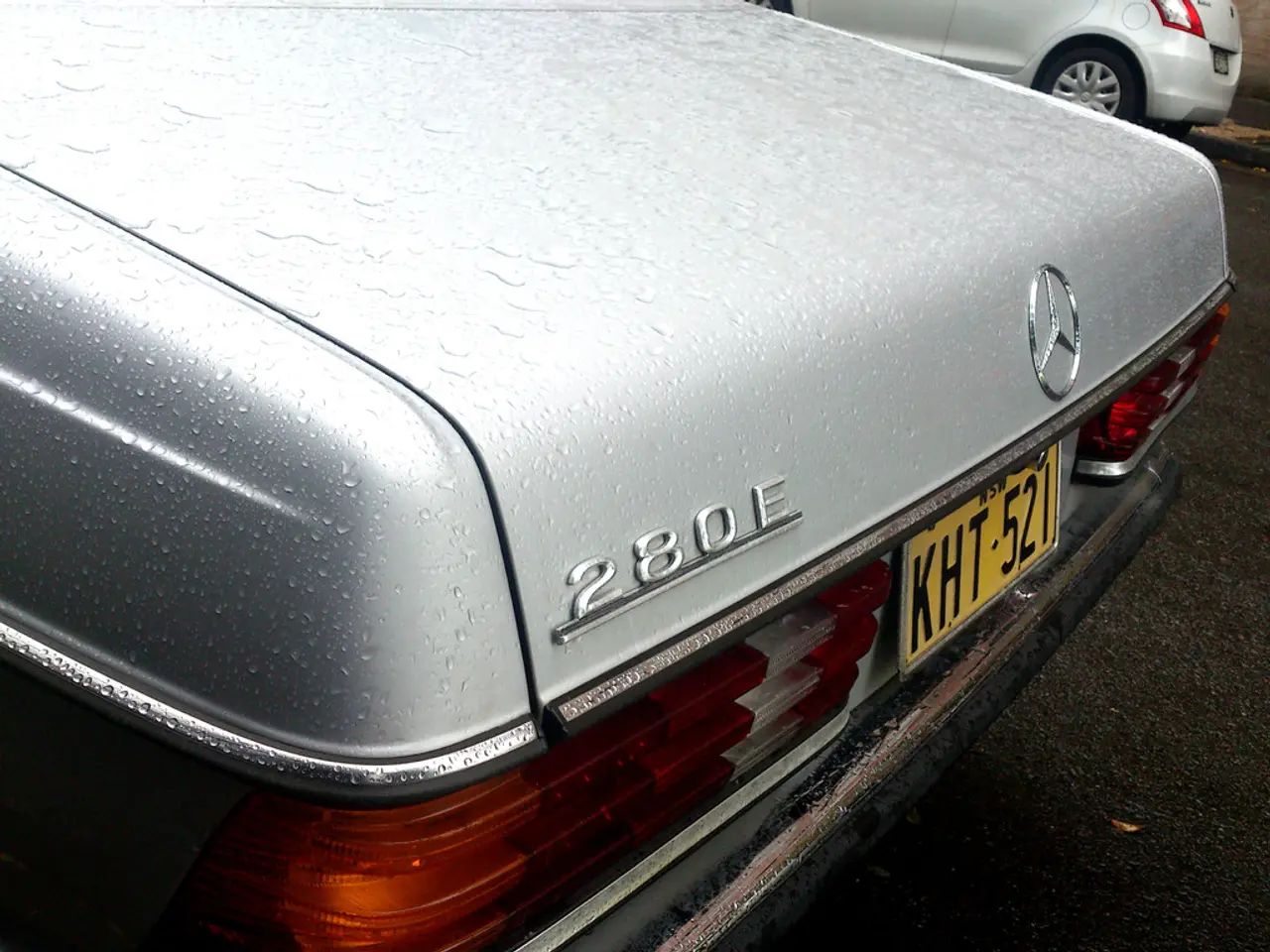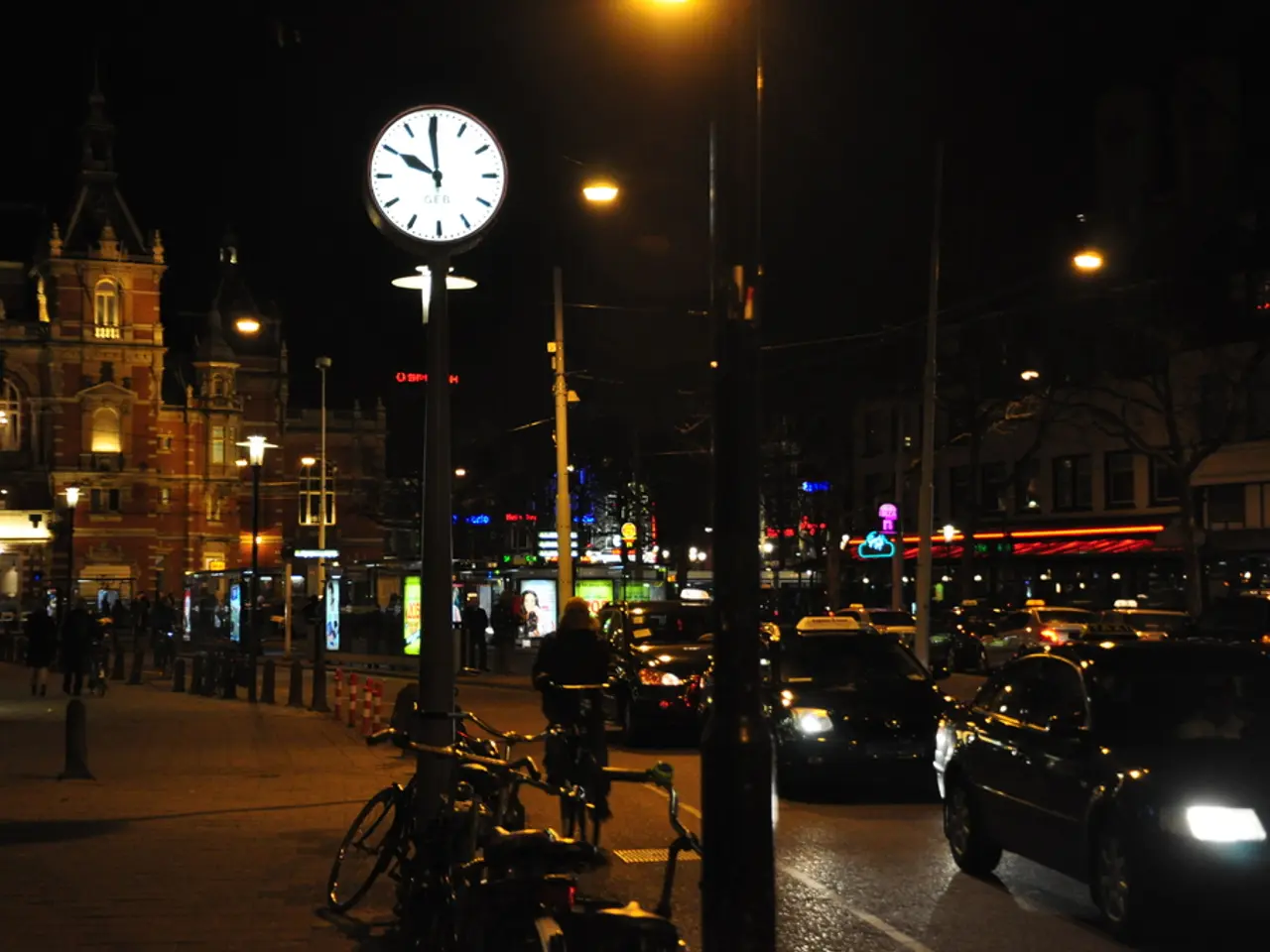Mercedes-Benz's Initial Branch Communicates Change in Ownership
Mercedes-Benz Begins Sale of Car Dealerships in Germany, Aims for Future-Proof Operations
Mercedes-Benz has announced a multi-year restructuring of its Own Retail operations in Germany, which includes the sale of car dealerships in various locations, such as Koblenz and Neu-Ulm, with more deals expected to be finalized between the second half of 2025 and early 2026.
The Sterne Group GmbH has been reported as the acquirer of these Own Retail operations, although the full scope of this acquisition and its integration plans have not been disclosed. The Mercedes-Benz Group remains open to further retail transactions, indicating a gradual and selective divestment strategy.
The sale of Mercedes-Benz's car dealerships is part of a broader transformation aimed at making the operations future-proof. The restructuring process includes an agreement with the works council, which was announced last summer in response to protests from employees.
According to the agreement, potential buyers must meet several requirements, including trading expertise, entrepreneurial competence, economic strength, investment readiness, and openness towards employee representatives. The Sterne Group GmbH, which already operates 15 Mercedes locations in southern Germany, is one of the companies in talks with Mercedes-Benz for the acquisition of additional dealerships.
The sale of Mercedes-Benz's car dealership in Neu-Ulm, which employs around 200 people, has already begun. Sterne Group GmbH has received the bid for this dealership and has a long-term concept for its operation.
The sale of Mercedes-Benz's car dealerships affects approximately 8,000 employees in around 80 operations in Germany. However, the transition is being managed progressively, and there is no specific public detailed information about direct employee impacts in these dealership sales other than that no immediate large-scale workforce disruptions are expected.
In addition to the restructuring in Germany, Mercedes-Benz plans to continue investing in its global footprint, particularly in the US, with increased R&D and production activities. The retail transformation aims to enhance efficiency and customer experience but is expected to stretch over several years.
[1] Source: Mercedes-Benz press release, various news reports.
- Mercedes-Benz's divestment strategy in its German car dealerships extends beyond the automotive industry, as the company is also open to further retail transactions in sectors like finance, transportation, and business.
- As part of the broader transformation to make its operations future-proof, Mercedes-Benz is imposing stringent requirements on potential buyers, such as investment readiness, economic strength, and openness towards employee representatives, in various sectors such as transportation, finance, and business.
- The sale of Mercedes-Benz's car dealerships, which is part of a multi-year restructuring plan, affects more than 8,000 employees in various locations, not only in the automotive sector but also in associated industries such as finance, transportation, and business.




